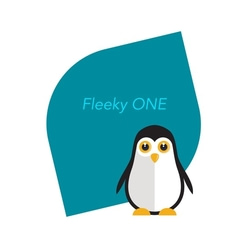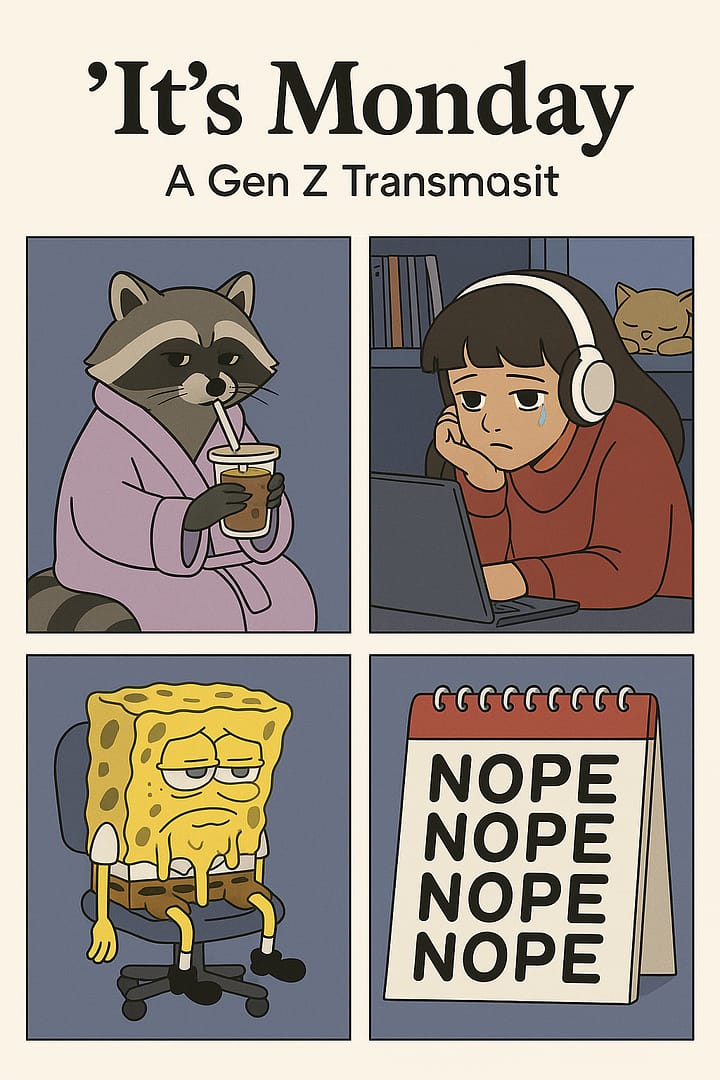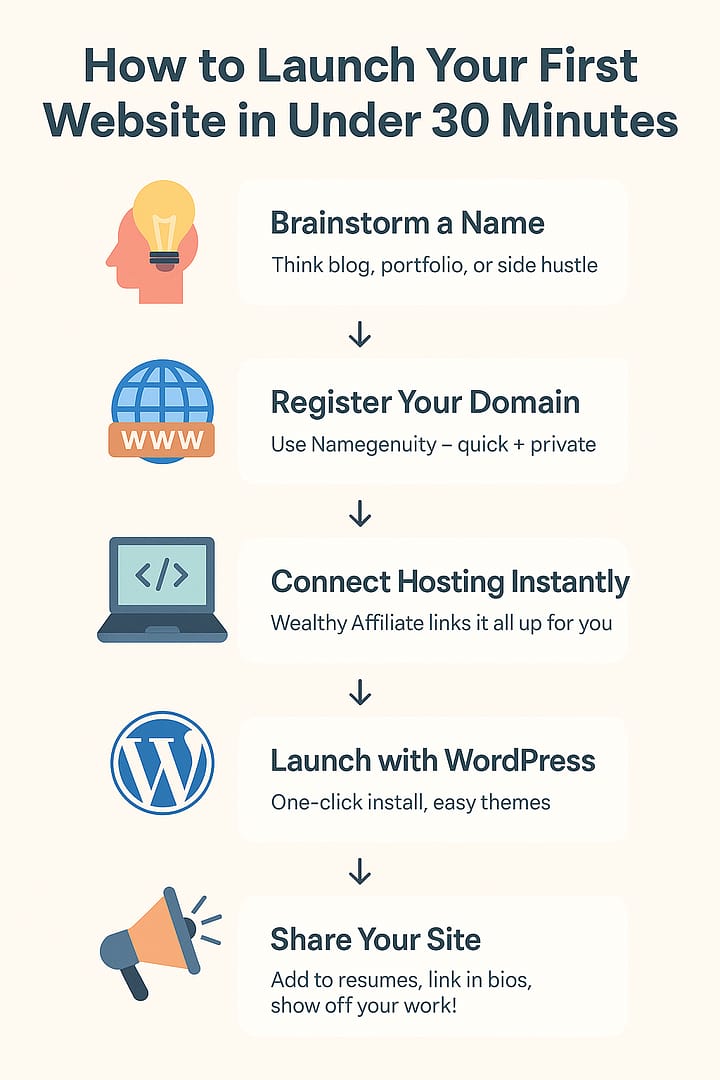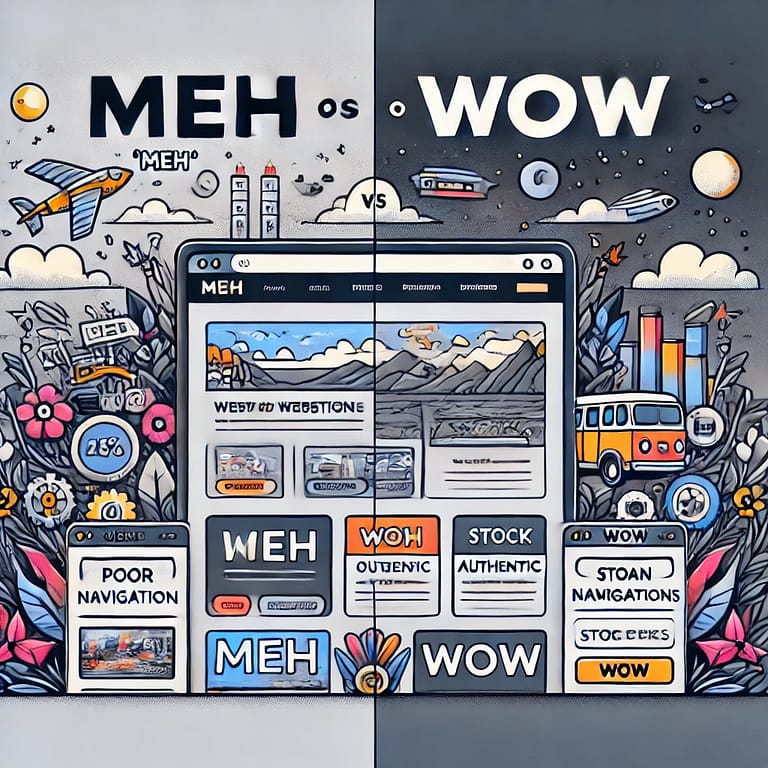
Clickbait and Genuine Value – 10 tips
Clickbait might be trendy, but there’s a way to incorporate its appeal without sacrificing credibility or alienating users. The key is to borrow the engaging aspects of clickbait while delivering genuine value. Here’s how websites can cope and adjust:
1. Craft Headlines That Intrigue Without Misleading
Clickbait thrives on curiosity. Use this tactic, but follow through with valuable content.
- Example of Bad Clickbait:
“You’ll NEVER Guess What Happens Next…” (Spoiler: Everyone hates this.) - Example of Good Clickbait-Inspired Headline:
“5 Surprising Tricks Experts Use to Save Money on Groceries” (Promise and deliver useful information.)
2. Focus on Emotional Appeal
Clickbait works because it taps into emotions—curiosity, FOMO, or excitement. You can do the same by addressing real concerns or aspirations of your audience.
- Example:
“How I Saved $1,000 in One Month—And How You Can Too!”
(People love actionable stories they can relate to.)
3. Use Numbers and Lists to Boost Engagement
Lists make content digestible and promise easy wins.
- Example:
“10 Genius Productivity Hacks You’ve Never Heard Of”
It’s specific, actionable, and doesn’t deceive the reader.
4. Add a Sense of Urgency or Exclusivity
Create a “now or never” vibe to hook readers, but make it authentic.
- Example:
“Limited-Time Tips to Double Your Productivity Before Friday!”
Combine urgency with actionable advice.
5. Pair Headlines With Visual Cues
Clickbait often succeeds with compelling thumbnails or visuals. Use engaging, authentic images or even a playful GIF to draw attention without going overboard.
- Example:
Pair “3 Kitchen Hacks That’ll Change the Way You Cook Forever” with a photo of an unexpectedly useful gadget.
6. Deliver the Promise Quickly
Nothing annoys users more than a clickbait headline leading to a wall of irrelevant text. Offer immediate value within the first few lines.
- Example:
Start with the key takeaway: “Here’s the #1 way to increase your website’s speed: Compress images using free tools like TinyPNG.”
7. Balance Curiosity With Transparency
Tease enough to make readers curious, but don’t hide critical details.
- Example:
“Why Everyone is Talking About This New Workout Routine”
(But make sure to explain why and include useful details within the article.)
8. Use Clickbait for Engagement and Build Trust Over Time
Clickbait’s problem is its tendency to feel manipulative. Build trust by always delivering substance beneath the catchy headline.
- Example:
“The Secret Sauce Every Website Needs” (but make sure you explain it’s good UX design, not literal sauce!)
9. Repurpose Clickbait to Encourage Sharing
Clickbait spreads because it’s shareable. Use emotional or curiosity-driven headlines to encourage readers to share your content.
- Example:
“My First-Time Mistake That Cost Me $500—And How You Can Avoid It” (A relatable title that drives clicks and shares.)
10. Optimize for Authenticity Over Virality
Your goal should be long-term engagement, not just one-off clicks. Use analytics to test which clickbait-like strategies work for your audience while staying authentic.
- Example:
Test headlines like:
By using “clickbait done right,” websites can tap into its power to grab attention without compromising integrity.
The secret sauce? Tease with curiosity, deliver on promises, and leave your readers genuinely satisfied (so they keep coming back).
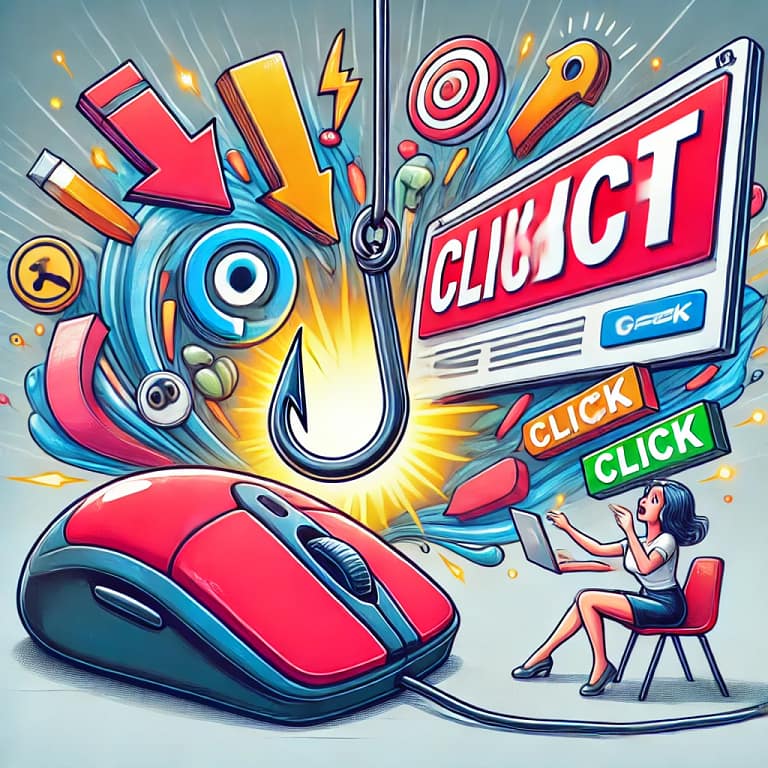
Clickbait is the modern-day digital hook
Thank you for reading and sharing!
Source OpenAI’s ChatGPT Language Model and DALLE – Images Picsart

Invest in your future & learn
Learn affiliate marketing & build your own website.
Heads up! Make sure you sign up using my referral link to get access to my personal coaching and all features.
👉 Sign Up
